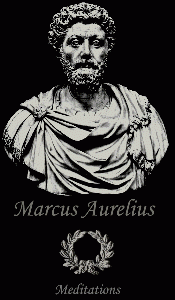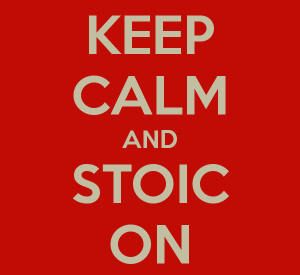A few weeks ago, as I browsed the web looking for my monthly Bluesbusters, I came across several quotes on the concepts of acceptance and detachment. As I reflected on their substance, some of their implications left me uncomfortable. Not all of them, just some.



Later that day, I was writing to my friend Wolf (with whom I often share my thoughts) and mentioned my uncertain position on the subject. Here is an extract:
 “Interestingly, I came across a few quotes that reminded me of the stoic approach to life. Currently reading the Meditations [by Marcus Aurelius], it triggered even more questions. (…)
“Interestingly, I came across a few quotes that reminded me of the stoic approach to life. Currently reading the Meditations [by Marcus Aurelius], it triggered even more questions. (…)
Often, detachment in life is recommended to reach happiness. Yet, if this is acceptable individually to take some distance from things and people and be less affected by what you cannot control, is it acceptable socially? Is it or is it not a duty to engage in and participate to the life of a community? Let’s take the act of voting: in some countries it is compulsory, which a strong part of me believe is a good thing. On the other hand, why should we be forced to vote if we don’t care? Is belonging to a community sufficient to make it a duty? But did we choose to belong to this community, or is it something that just happened, like the family we are born into?
Argh! So many questions, and of course so little answers. I have my own opinions concerning the answers, of course I do, but I know they are just that: opinions. As such they are not better or worse than others (depending if they are presented and argued properly, obviously). Mmmm… ”
To structure my thoughts, I decided to revise my classics and check the definition of stoicism. Here is the one from the Oxford Dictionary: “An ancient Greek school of philosophy founded at Athens by Zeno of Citium. The school taught that virtue, the highest good, is based on knowledge; the wise live in harmony with the divine Reason (also identified with Fate and Providence) that governs nature, and are indifferent to the vicissitudes of fortune and to pleasure and pain.”

Two words stand out for me from my readings on Stoicism: rationality and indifference. So it seems that with a rational mind and cultivated indifference, one can reach inner peace, and with inner peace, happiness.
Right. I rather like a rational mind, and a cultivated indifference is not a bad state to avoid a constant chaos of emotions. But… I do like some emotions too …. A little bit of passion and buzz in one’s life, the thrill and adrenaline, isn’t it also a source of (temporary) happiness?

Plus, if everyone was being relatively indifferent, how would it affect the society? Among other things, it would mean that a few would have the license to lead or take control as they wish. My mother reminded me of a good saying: ‘the silence of slippers is more dangerous than the clatters of boots.’
Being able to detach oneself from the eye of the storm and taking some distance is key to to study a problem more clearly and to relativise the situation. However, a total detachment is dangerous, as it means a problem is not dealt with. 
And so once again, I conclude my reflections with a one of my favorite words: balance. Keeping a well-balanced approach between rationality & cultivated indifference and emotions & engagements, is akin to keeping the right balance between the head and the heart. An eternal challenge for humanity, I fear.
I must stop here, or I will continue writing until dawn.
Thank you for reading,
Yours, Virginie